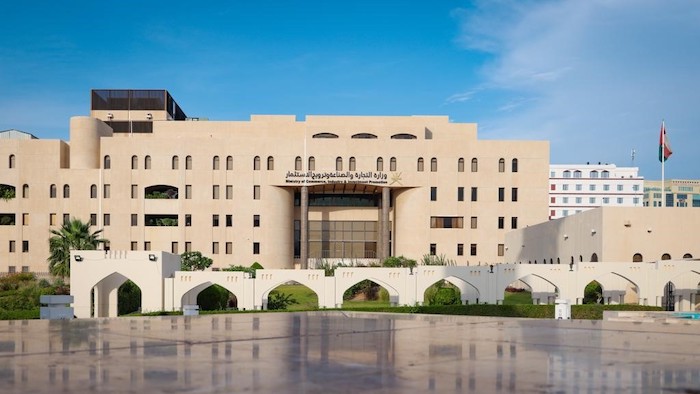
Muscat: The Ministry of Commerce, Industry, and Investment Promotion has issued Ministerial Decision No. 435/2024 to amend certain provisions of Ministerial Decision No. 209/2020, which defines the list of activities prohibited for foreign investment, restricting them to Omani investors only.
This decision aligns with Article 14 of the Foreign Capital Investment Law issued under Royal Decree No. 50/2019, which stipulates that "a list of activities prohibited for foreign investment shall be issued by the minister."
The decision aims to balance attracting qualitative investments with encouraging entrepreneurial projects, in line with the government's priority to empower small and medium enterprises (SMEs) that enhance the Omani economy.
It serves as an incentive for Omanis to establish their own businesses and create new job opportunities for citizens. Omani investors are allowed to invest in all activities where foreign investment is prohibited. The decision also seeks to provide opportunities for Omani-owned SMEs in these sectors and ensure that projects and activities related to national identity and Omani heritage are not affected.
This list will be updated according to the circumstances of each phase to keep pace with economic developments.
The decision added 28 activities to the list reserved for Omani investors only, prohibiting foreign investors from engaging in them, bringing the total number of such activities to 123.
Article 2 of the ministerial decision stated that any provisions that contradict this decision are nullified. Article 3 confirmed that the decision would take effect the day after its publication, excluding existing investment projects at the time of its implementation, which cannot be transferred to others without written approval from the Minister of Commerce, Industry, and Investment Promotion or his delegate, as stated in Article 2 of Ministerial Decision No. 209/2020.
The newly prohibited activities include the production of handicrafts by distilling flowers and herbs, the production of handicrafts for producing frankincense water and oil, the production of leather handicrafts, the production of palm leaf handicrafts, the production of wood handicrafts, the production and preparation of incense, the production of handicrafts for cosmetics and perfumes, the production of pottery and ceramics, the production of stone and gypsum handicrafts, the production of silver handicrafts, the production of copper and metal handicrafts, the production of aluminum handicrafts, the production of traditional fishing tools, and the production of bone-derived handicrafts.
The decision also includes activities such as skin care services, event and furniture rental, retail in specialised stores for scrap materials (including scrap iron trade), retail in specialised stores for drinking water (excluding production and transportation), the cultivation of live plants for planting, decoration, and seedlings (nurseries), the sale of used vehicles, mobile cafes, freshwater aquaculture, mailbox rental services, public scribe services, Sand Services Center, the management and operation of liquefied petroleum gas (LPG) filling stations (cooking gas), the collection of used batteries and oils, and grocery stores.
It is worth noting that the provisions of the Foreign Capital Investment Law apply to any natural or legal person who is not Omani and establishes an investment project in the Sultanate of Oman by enabling their capital and assets to establish economically viable investment projects for the Sultanate. The law helps create an attractive investment environment and facilitates suitable conditions for investment, given the global competition to attract investments by granting incentives, privileges, and guarantees that contribute to stabilising foreign investments in Oman.
Additionally, the Foreign Capital Investment Law grants foreign investment projects the right to enjoy all the benefits, incentives, and guarantees enjoyed by national projects according to the laws in force in the Sultanate of Oman. Foreign ownership in companies is allowed up to 100% based on the Foreign Capital Investment Law, and foreign investors are permitted to invest in over 2,000 commercial or industrial activities.
As a result of these advantages and incentives, Oman achieved significant growth in foreign direct investment by the end of the first quarter of 2024, with a 19.3% increase compared to the same period in 2023.
The total foreign direct investment by the end of the first quarter of 2024 reached OMR 25.38 billion, compared to OMR 21.27 billion during the same period in 2023.
List of activities prohibited for foreign investment :
1-Making handicraft products by distilling flowers and herbs.
2-Making handicraft products to produce frankincense water and oil
3-Making handicraft products from leather.
4-Making handicraft products from palm leaves.
5-Making handicraft products from wood
6-Making and preparing incense.
7-Making handicraft products for cosmetics and perfumes.
8- Making handicraft products from pottery and porcelain.
9-Making handicraft products from stone and gypsum.
10-Making handicraft products from silver.
11-Making handicraft products from copper and metals.
12-Making handicraft products from aluminum.
13-Making handicraft products for traditional fishing tools.
14-Making handicraft products derived from bones
15-Skin care services.
16-Renting of event supplies and furniture.
17-Retail sale in specialised stores of scrap building materials (including scrap iron trade).
18-Retail sale in specialised stores of drinking water (excluding production and transportation)
19-Cultivation of live plants.
20-Planting, ornamental and seedling purposes (nurseries).
21-Sale of used vehicles.
22-Mobile Cafe.
23-Freshwater fish farming.
24-Providing mailbox rental services.
25-Scribe services General.
26-Sand Service Center.
27- Management and operation of LPG filling stations (cooking gas).
28-Collection of batteries and used oils.
29-Grocery stores.